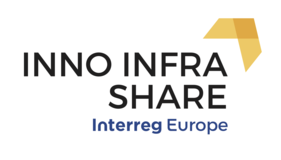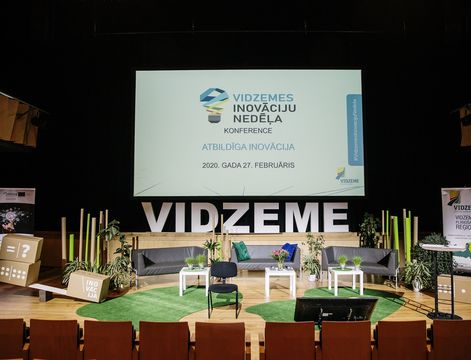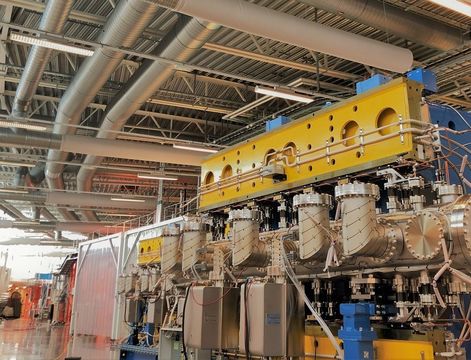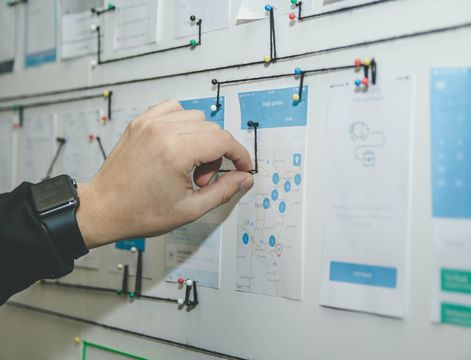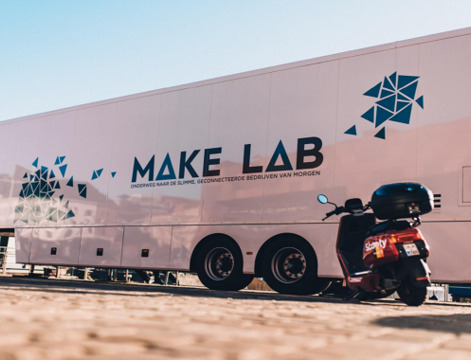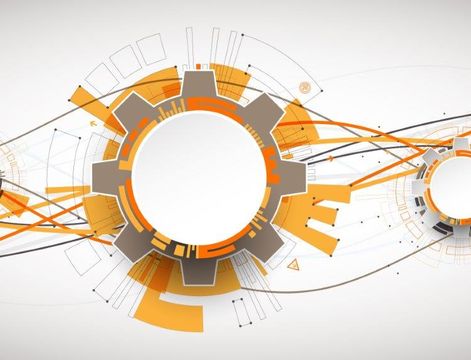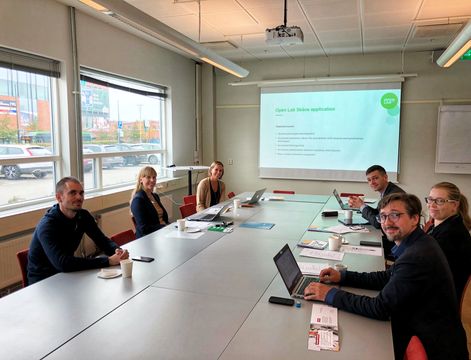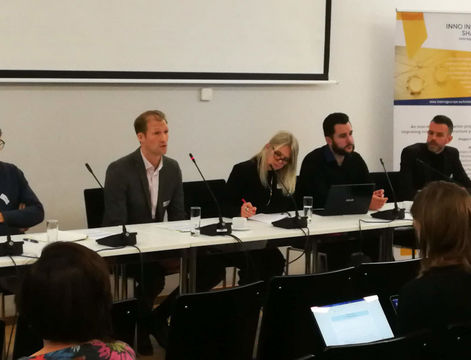First of the two sessions of the INNO INFRA SHARE online conference on research and innovation infrastructures (RIIs) and interregional cooperation has passed, gathering around 50 participants from research innovation infrastructures, universities, state and regional policy makers from partner countries. The first session showcased business models for RIIs, EU strategy for technology infrastructures and gave exciting examples of RII accessibility to industries and innovative infrastructure ecosystems from The Netherlands, Belgium and Italy.
The first session was started with a keynote by Maurits Butter, Senior Scientist at TNO Strategy & Policy, who focused his presentation on the RIIs, and their exploitation business models. He presented various business models and distinguishing factors among them, based on the RII offer and customer segmentation (large companies, SMEs, startups – all have very different needs). RIIs need to pay attention both to business model and to revenue model and differentiate their services according to the different needs of companies based on their size and maturity.
Talking about the role of public funding and financial sustainability for the business model of RII, Maurits Butter said:
“Normally RII business model requires a lot of public funding in the beginning, but within 5-7 years the share of public funding should decrease. However, for RIIs it is never going to be 0%. RIIs are not expected to be industry fully owned, but they need to become industry driven. “
His presentation was followed by three examples of project partner regions.
Michel Weeda, program manager at Brabant Development Agency, presented the case of the Brainport industry campus which is mainly regionally co-funded. Province of North-Brabant has a very strategic view on the importance of smart industry & industry 4.0 and has thus enabled the Factory of the Future programme. The campus ecosystem offers production, innovation, and education all under one roof. There are multiple assets in the field labs allowing the testing, experiments, and applied research. The campus is currently transforming to a more hybrid business model - a “shop” field lab.
Ger van den Kerkhof from Flanders Make introduced Make Lab – a mobile Industry 4.0 infrastructure. He spoke on how to bring Industry 4.0 technology demonstration to the companies and how to actively work with them to validate research results. The lab is funded by the Flanders Make and ERDF funding. The Lab provides companies of various sizes with several types of services, like demos, master classes, workshops – all fully paid for by the companies. In the case of small companies and start-ups who are not able to afford the Lab and it’s services for the full price, therefore different arrangements are made – companies can use services for limited costs, but are enrolled on various research projects done by the Flanders make. These are considered “sales costs” towards the startups and scaleups.
“Free services do not have a real value!” says Ger van den Kerkhof.
Sanzio Bassini, the director of the Supercomputing Applications and Innovation Department of CINECA Interuniversity Consortium, talked about The S.U.P.E.R. project: a regional project for a national federated digital infrastructure integrated in the European infrastructure ecosystem. S.U.P.E.R. RIIs will tackle challenges, fundamental and applied research projects in the areas of life science, precision medicine, clinical data analysis, biobanks, advanced materials and industry 4.0. Its business model foresees that proof of concept activities within the RII are co-funded by the companies.
The concluding keynote was provided by Charlotte Andersdotter, head of Research Institutes of Sweden (RISE), Sweden. She talked about the EU strategy for technology innovation infrastructures (TIIs). RIIs usually are geared towards lower technology readiness levels (TRL) and lower exploitation intensity by the industry, but TIIs are focused on higher level TRLs, are usually co-funded, co-established and co-built together with the industry, primarily for the demonstration activities.
“TIIs are the backbone for the RDI ecosystems,” says Charlotte Andersdotter.
She also talked about the limiting nature of the current state aid rules in EU which are restrictive towards development of RIIs and TIIs. They currently seriously limit the development of shared TIIS, even in the cases when they are being developed as an open-access test bed. State aid rules need to be revised and a knowledge gap between various DGs in relations to this issue needs to be bridged to do this.
All presentations here.
The second session INTERREGIONAL COOPERATION FOR INNOVATION takes place on 27th October, 2020 and will focus on the importance of interregional cooperation for development for stronger research and innovation ecosystem in Europe. Detailed program here.
Register:
